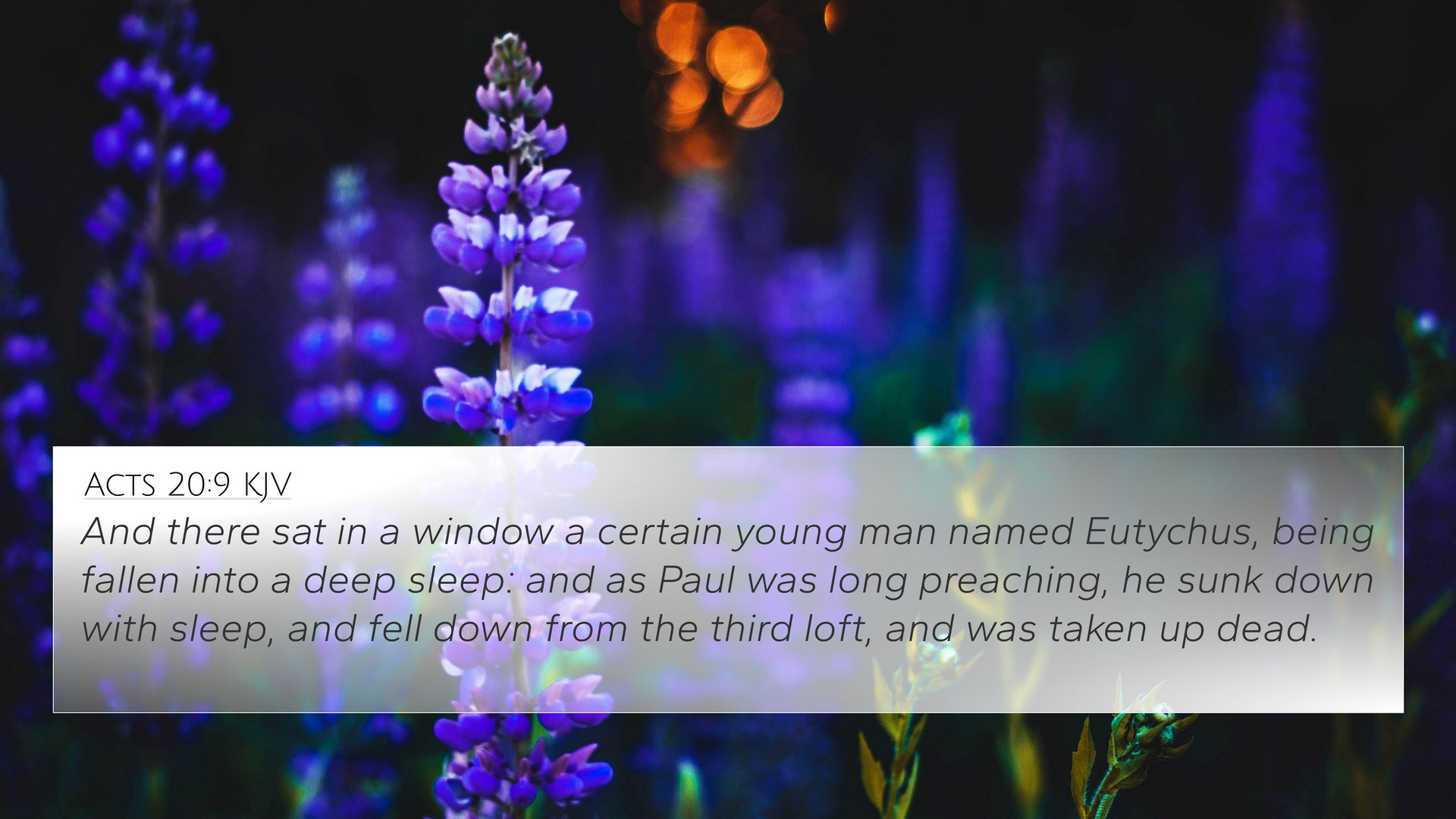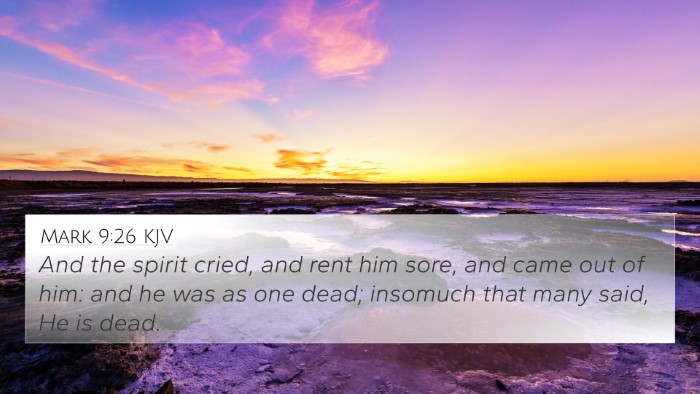Understanding Acts 20:9
Acts 20:9 states:
"And there sat in a window a certain young man named Eutychus, being fallen into a deep sleep: and as Paul was long preaching, he sunk down with sleep, and fell down from the third loft, and was taken up dead."
Summary of the Verse
This verse narrates an incident during one of Paul's long sermons where a young man named Eutychus falls asleep and falls from a window, leading to his apparent death. This situation serves multiple purposes within the narrative, from illustrating the challenges of long preaching to emphasizing God's miraculous power through Paul.
Commentary Insights
Insights from prominent public domain commentators provide a deeper understanding of the implications and lessons from this passage:
-
Matthew Henry:
Matthew Henry emphasizes the human condition in spiritual gatherings. He reflects on the weariness that can come from extended teaching, commenting on the vulnerability that accompanies spiritual engagement. He also highlights the miraculous restoration of Eutychus by Paul, pointing to the power of God’s grace and the affirmation of Paul's ministry.
-
Albert Barnes:
Barnes notes the setting during Paul's ministry, explaining the significance of gathering together for the Word. He discusses the symbolic nature of Eutychus's fall—suggesting it represents how spiritual lethargy can lead to a fall from grace if vigilant effort is not maintained. Barnes also reflects on the importance of the assembly, urging believers not to overlook gathering for spiritual edification.
-
Adam Clarke:
Adam Clarke provides an analysis concerning the dangers of neglecting one's physical state during spiritual activities. He interprets Eutychus's fall as a warning against complacency and distraction in spiritual matters. Clarke elaborates on the restoration that follows, indicating this represents a spiritual awakening and revival that follows overcoming lethargy.
Bible Verse Cross-References
The narrative in Acts 20:9 connects with various themes and stories throughout the Bible, providing a rich tapestry of scripture interpretation:
- 1 Kings 17:17–24: This passage discusses the resurrection of the widow’s son by Elijah, paralleling Paul’s miracle with Eutychus.
- 2 Kings 4:32–37: Elisha raised a young boy from the dead, showing the continuity of God's power through His messengers.
- John 11:1–44: The raising of Lazarus connects in a thematic sense, emphasizing Jesus' power over death.
- Matthew 9:18–26: Jesus raises a girl from the dead, demonstrating His authority and the promise of resurrection.
- Luke 8:49–56: This account further establishes the connection between physical death and spiritual resurrection.
- Acts 2:17–18: Speaks to the outpouring of the Spirit, parallel themes of new life and revival tying into Paul's ministry.
- Romans 8:11: This verse elaborates on the Spirit's role in resurrection, echoing the miraculous event involving Eutychus.
Thematic Connections
The interconnectedness of Acts 20:9 with these scriptures highlights the overarching themes of:
- Resurrection and Restoration: Eutychus's revival relates to themes of new life in Christ and the hope of resurrection.
- Perseverance in Faith: The challenges of maintaining faith amidst weariness and distractions.
- Power of Prayer: The emphasis on prayer and the community's role in seeking God's help during crisis.
Practical Applications
Reflecting on Acts 20:9 prepares believers to:
- Stay Engaged: Remain attentive during spiritual teachings to avoid distractions that lead to spiritual lethargy.
- Encourage Community: Foster a sense of community that supports members in times of spiritual slumber or crisis.
- Embrace the Miraculous: Recognize and testify to the miraculous workings of God in their lives and others' lives.
Conclusion
Acts 20:9 serves as a reminder of both human frailty and divine capability, teaching believers about vigilance in their spiritual pursuits. The cross-references illuminate the broader biblical narrative regarding life, death, and spiritual awakenings, inviting deeper reflection on inter-Biblical dialogue and comparative analysis of scripture.








